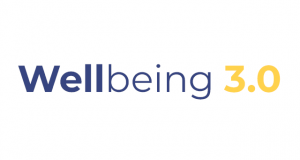
Five findings from Gallup's Forging Pathways to Purposeful Work Study
While most of the publication focuses on what colleges can do to prepare their students to have successful and purposeful lives, their findings extend past higher education audiences. There’s a wealth of important information in the study that organizational leaders and talent managers need to know now about the future of work.
College Students Today are Preparing for the Purpose-driven Careers of Tomorrow:
Gallup recently published “Forging Pathways to Purposeful Work: The Role of Higher Education,” a new study they conducted in collaboration with Bates College, a liberal arts college in Lewiston, Maine, that recognizes the importance of preparing students for a purpose-driven career.
We encourage everyone in a talent management role to read the full report. For a quick recap, we’ve compiled the five most important findings for you here.
1) 80% of college graduates “affirm the importance of finding purpose in their work,” but less than half succeed.
The fact that graduates are looking for purpose should be no surprise; Deloitte found that more than half of millennials would take a pay cut to work for a more purposeful company. The more surprising part of this finding is that companies are not taking the hint. There’s a clear gap between the desires of what college graduates want in their jobs and the actual experience that employers provide. Filling this gap and showing graduates how purposeful work can be at your company is a great way to attract fresh talent from the nation’s top universities.
2) People who spend more time reflecting have a higher sense of purpose in work.
In fact, graduates with higher levels of reflection were 67% more likely to have a high level of purpose in their post-graduation jobs. Given all the benefits that purposeful employees bring, it is interesting to see what qualities may lead employees to be purposeful. Reflecting on work also was found to improve job performance, according to research presented by the Harvard Business School.
3) Graduates with a high level of purpose in work are nearly 10 times more likely to have high overall wellbeing.
The health benefits of a sense of purpose in life have been known for years now, but what makes this finding interesting is that it specifically demonstrates benefits stemming from having a work purpose. At a time when most of the scientific literature focuses on how a more broad life purpose impacts individuals, it is refreshing for research to come out showing why purpose is so important in the workplace on an individual level. The clear correlation between purpose in work and high overall wellbeing is also striking. If there were a drug that made people 10 times more likely to achieve higher overall wellbeing, it would be a blockbuster—experiencing these results by simply aligning to a work purpose is miraculous (and has only positive side effects).
4) Purposeful employees are more engaged and are more likely to be thriving in their lives overall.
Gallup’s wellbeing metrics include an element called “purpose wellbeing,” which measures how connected employees are to their own personal life purpose. In this study, Gallup discovered that workers with high purpose wellbeing are 20 times more likely to be engaged at work than those who are not engaged. What’s more, if people are thriving in their sense of purpose, they are twice as likely to be thriving in life overall, too. Well-documented are the benefits of employee engagement, from lower turnover to fewer safety incidents, and thriving employees means happy, healthy, and productive employees.
5) People who can align their work with their interests, values, and strengths are about three times more likely to experience high purpose in work.
This finding should also be no surprise, but the strength of the correlation is compelling. It makes sense that an employee who is able to integrate their interests, values, and strengths within their job—a place where they spend so much of their time—is better able to find purpose in their work. This strategic alignment of interests, values, and strengths lets employees cut through the clutter of their everyday lives and see through to a guiding star, their higher purpose.

